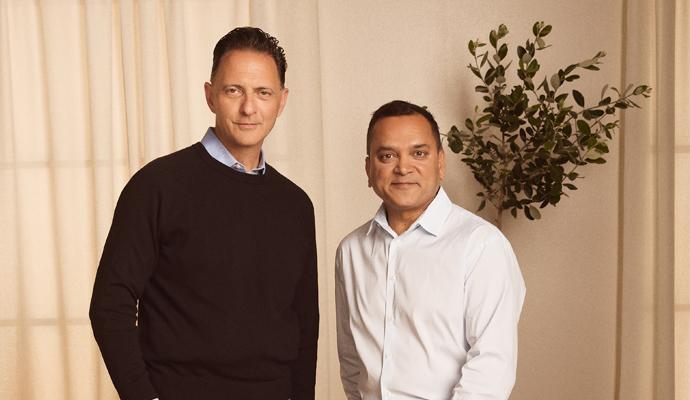Here Come the Sogo Shosha
Japan’s little-known trading companies are buying startup technology businesses in the U.S., hoping to catch the next wave of American economic growth.
(originally published by Booz & Company)At the time, it seemed like an unstoppable trend. In 1989, Japan’s Mitsubishi Estate Company paid almost US$2 billion for New York City’s Rockefeller Center. About a year later, a Japanese company called Cosmo World Corporation bought the famed Pebble Beach golf resort on California’s Monterey peninsula for roughly $1 billion. Other trophy properties snapped up by Japanese interests around the same period included Columbia Pictures and CBS Records.
These deals triggered a U.S. backlash, led by politicians and commentators who claimed that the United States was being taken over by a country it had vanquished not long before. In their jingoistic view, the end was certainly near.
Roughly 20 years later, many of those acquisitions have been unwound, but the Japanese are once again spending on mergers and acquisitions in the United States. This time, the targets are in technology sectors such as renewable energy, medical devices, health care, and information technology. And this time, it’s not the well-known Japanese companies doing the deals, but instead firms known as sogo shosha — the once-sleepy Japanese trading companies that traditionally served as middlemen for selling such mundane products as textiles and chemicals.
And today there’s no sign of American outrage. U.S. entrepreneurs desperately need capital, and the Japanese have it. “If you compare the situation that you have in the United States with what we have in Japan, we have a much healthier situation,” says Eizo Kobayashi, president and chief executive officer of Itochu Corporation, one of the five major sogo shosha, with annual sales of $130 billion. Indeed, despite the recent sharp contraction in the Japanese economy, the nation is sitting on huge sums of capital, including $16 trillion in household assets alone.
In terms of revenue, Itochu is the third-largest sogo shosha, smaller than leaders Mitsubishi Corporation and Mitsui & Company. But it is the most aggressive in the United States. Unlike the Sony Corporation, the Toyota Motor Corporation, and the other big brands that are firing workers and closing plants because of falling demand for their products, the trading companies have been patiently building capital for years in hopes of expanding in the U.S. market. In the past they typically lost out on deals because of the dominance of U.S. private equity (PE) firms such as the Blackstone Group and Kohlberg Kravis Roberts & Company (KKR). “We had difficulty competing with the PE players,” says Itochu’s Kobayashi. “They had so much money. They acquired companies at the very top. Now they are frozen and we see more opportunities at a reasonable price.”
Itochu closed 10 deals in the United States in 2008, up from four in 2007 — with all of the 2008 deals in the $10 million to $70 million range. So far, it has invested $2 billion in the U.S. and hopes to increase that to $6 billion. The other trading companies also have targeted billions in search of willing sellers, according to Hajime Matsuura, U.S. correspondent for the Nihon Keizai Shimbun (The Nikkei) newspaper, who tracks the industry.
The sogo shoshas’ investment campaign is much more targeted than the big plunges Japanese investors once took. Most deals have involved smaller entrepreneurial firms and new technologies. For example, in November 2008, Itochu teamed with energy investment companies BayCorp Holdings Ltd. and Energy Management Inc. to form American Renewables LLC. This new company won approval from Nacogdoches, Tex., to set up the largest biomass facility in the country, Nacogdoches Power LLC, which will use woodchips to create 100 megawatts of electricity by 2012, and has four other biomass projects under way.
A year earlier, Itochu acquired Petaluma, Calif.–based Solar Depot LLC, which distributes, finances, and installs solar energy systems for residential and commercial markets. And in 2007, Itochu bought Mandeville, La.–based MedSurg Specialty Devices, which distributes robotic equipment that helps pharmacists and doctors prepare hazardous drugs. Taking a page from the U.S. private equity industry, Itochu has recently established Principal Investments Group, an in-house investment firm.
Among the other top trading firms, in late 2006 Mitsui acquired SunWize Technologies Inc., a photovoltaic business located in Kingston, N.Y., and Marubeni America Corporation has made a variety of energy investments, including a series of biomass acquisitions. Mitsubishi International has a portfolio of a half-dozen small companies, purchased and operated through Red Diamond Capital, a $150 million buyout fund. The fifth major trading firm, Sumitomo Corporation, has been less active.
Collectively, these efforts are not going unnoticed. Says Hugh Patrick, a professor at Columbia Business School and director of its Center on Japanese Economy and Business, “If you look at the major trading companies, now more than half of their capital is invested in a range of direct investments in firms engaging in some production activities, rather than just trading. In a rather quiet way, trading companies have transformed themselves into investment conglomerates.”
Itochu and its rivals are bullish on the U.S. because they view it as the perfect place to learn how innovative technologies take shape. “We have always looked to the U.S. for new business models,” says CEO Kobayashi. “When we want to do new business, we go to the United States for new concepts.”
But that isn’t the case with renewable energy. The U.S. lags the rest of the Western world in developing solar technologies, so the Japanese plan to inject their technology and know-how through their U.S. investments. They are primarily acquiring solar systems integrators, which will buy cells and panels from manufacturers in Japan and elsewhere and install them in the United States. Columbia’s Patrick says the U.S. stands to benefit from these arrangements. He estimates that 20 percent of the total cost of solar implementations is tied up in local installation and maintenance. “Those are American jobs,” he says.
However, these firms (and perhaps the future growth of the U.S. solar industry) will be dependent on Japanese ownership and management. “This is an area where Japan can take leadership,” says Gen Hajime Ito, president of the Japan External Trade Organization in New York, which is part of the Ministry of Economy, Trade, and Industry (METI). METI is the new name of the Ministry of International Trade and Industry, or MITI, which played a strong role in shaping Japan’s postwar economic ascendance.
Twenty years ago, if a top MITI official had proclaimed that Japan would take a commanding position in a sensitive sector of the U.S. economy, it would have sparked anger in American streets — or at least rhetoric in the halls of Congress. But today it appears even the most promising sectors of the U.S. economy need all the help they can get. ![]()
William J. Holstein is the author of Why GM Matters: Inside the Race to Transform an American Icon (Walker, 2009). For more on his work, see www.williamjholstein.com.




